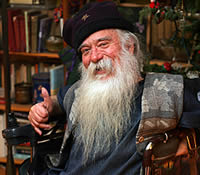Act Now

Empower U: Learn to Access Your Disability Rights Training on Canadian Human Rights, the Convention on the Rights of Persons with Disabilities (CRPD) and its Optional Protocol (OP) training aims to increase awareness of how to address discrimination using more familiar Canadian human rights laws such as Human Rights Codes and the newer international Convention on the Rights of Persons with Disabilities (CRPD). This is training for persons with disabilities by persons with disabilities. The training is part of a project funded by Employment and Social Development Canada and implemented by the Council of Canadians with Disabilities (CCD) in collaboration with Canadian Multicultural Disability Centre Inc. (CMDCI), Citizens With Disabilities – Ontario (CWDO), Manitoba League of Persons with Disabilities (MLPD) and National Educational Association of Disabled Students (NEADS). Read more.
Sign Up for our monthly digest
A monthly newsletter from CCD about what is happening in the community
Humanity evolving on human rights
Related Documents
November 18, 2025
Nova Scotia League for Equal Opportunities |1 Week Left to Register for In-Person Tickets | Ability to Rise: Celebrating Leaders in Disability Inclusion 2025
October 17, 2025
Weekly Email Digest for Information Sharing Purposes October 14 - October 17, 2025
October 17, 2025
Weekly Email Digest for Information Sharing Purposes October 6 - October 10, 2025
By Jim Derksen
I became aware, at a very young age, of the low expectations people generally had for me -- not to ever be employed or support myself, not to have political agency, not to ever enjoy physical intimacy, marry or have children. As a person using a wheelchair since I was six years old in 1953, I was undervalued and not considered able to have the same rights as non-disabled persons.

My world, constructed on these assumptions and attitudes, often blocked my way forward. My problems were never seen in the context of human rights. It has always been that discrimination is initially thought of as a logical sorting function based on biology or other "inherent" and mostly unchangeable differences between people -- whether these differences are based on questionable concepts of race, ethnicity, language, culture, poverty, gender, sexual orientation, age, disability or other arbitrary characteristics. Changeable social role assignment is not considered in this classical categorical version of "reality." Depending upon which valued or unvalued category an individual is assigned, the treatment they receive from others, however subtly privileged or brutally demeaning, is seen as eminently reasonable. Human rights seldom enter any discussions in this context.
History throughout the world is filled with terrible examples of cruel and disrespectful treatment of humans by other humans. Programs to annihilate the culture of people by taking children by force to live in residential schools for successive generations were operated without understanding that human rights were being violated. Children with disabilities were routinely deprived of their liberty in locked institutions, sterilized or even killed without reference to their human rights. Chinese head taxes, as well as Ukrainian, Polish, Italian and Japanese internments in 20th-century Canada were enacted and carried out with no recognition of rights being violated.
The great need now is to be able to recognize human rights and their violations as exactly that, so that such abuses can be stopped and prevented. The slow building and development of human rights ideas over many centuries led to the Universal Declaration of Human Rights by the United Nations in 1948. While the idea of equal and inseparable rights for every human being on this planet is not very old, fairness is a very old and deep idea. Human rights are a new way of understanding how to be fair. The idea of human rights, because it is so young, is also very fragile.
Further to the Universal Declaration of Human Rights, the International Convention on Civil and Political Rights and the International Convention on Economic, Social and Cultural Rights were also developed by the United Nations. Canada has signed onto both of these, but there is a split in the global community where some countries support one or another of these sets of rights.
It is very important that we keep thinking about the idea of human rights, and keep discussing what it means and how it can be applied to human relations throughout the world. The Canadian Museum for Human Rights can do this in Manitoba and it is a vital means and venue for these discussions.
Recently, we have become aware of how precarious our life is on this earth. The scientific consensus is that climate change, brought about by our radical overpopulation of the planet and our global overuse of carbon-based energy, may well transgress several Tipping points that could threaten the survival of the human species. Human conflicts, distrust and shortsighted self-interests underlie and aggravate our resistance to necessary collective environmental behaviour changes. Broadening and deepening our understanding and use of our common human rights is now more necessary than ever to establish the trusting, stable and respectful social and political environment needed to rescue the livability of our one and only home planet.
As young ideas, human rights understandings are still growing and evolving, new human rights are being articulated. For example, the UN declared access to clean water a human right. Will clean air be next? Could we see this also recognized as a common human right? The time has come to meet at the meeting place at The Forks to ponder these questions.
Jim Derksen is a past chairperson of the Council of Canadians with Disabilities and a member of CCD's Human Rights Committee. He is on the CMHR's inclusive design advisory committee and human rights advisory council.

End Exclusion supporters rally in support of an accessible and inclusive Canada.
